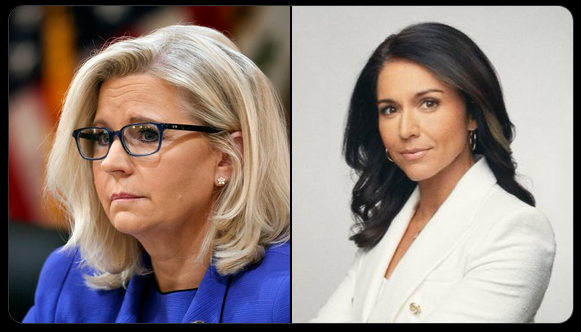Political realignments have been a regular occurrence throughout American history. Our republican system of government encourages two dominant parties, but within each, numerous factions compete for influence. When these factional systems become stale or ineffective, the parties realign, bringing new issues to the forefront.
The Progressive Movement built on the foundation of the late 19th-century Populists, initially finding a champion in Democrat William Jennings Bryan. However, it was Republican Teddy Roosevelt who implemented many progressive policies. By the mid-1910s, most progressive goals had either been accomplished or become obsolete, leading to new party realignments.
Republicans in the first half of the 20th century were generally isolationist, opposing foreign entanglements. Idaho’s lion of the Senate, William Borah, helped kill President Woodrow Wilson’s attempt to involve the United States in world affairs through the League of Nations in 1919. Yet, nearly a century later, Republicans were gung-ho for invading Iraq. What changed?
In the latter half of the 20th century, neoconservatives gained influence in the Republican Party. These “new conservatives” were anti-communist, interventionist, and generally supported open borders and free trade. Many of them switched from the Democratic Party to back Ronald Reagan, who championed these causes.
Neoconservatives were never particularly concerned with social issues like abortion or traditional marriage, though many paid lip service to these topics to maintain the allegiance of social conservatives. Their influence peaked during George W. Bush’s administration, which expanded free trade, invaded the Middle East, and welcomed more immigrants—legal and illegal—than ever before.
During this period, many Democrats passionately opposed the neoconservative agenda. Democrats identified with the antiwar movement, and even arch-leftist Bernie Sanders called open borders a “Koch Brothers proposal.” Yet, in many ways, Barack Obama’s administration continued the policies of George W. Bush. He kept troops in Afghanistan and Iraq, expanded them to Syria, and failed to close the terrorist detention center at Guantanamo Bay. He also left international trade and illegal immigration largely untouched. Even Obamacare had roots in a Heritage Foundation proposal from the late 1980s and early 1990s, meant as an alternative to the single-payer healthcare ideas bandied about by Democrats during that era.
The Tea Party in 2009 and Occupy Wall Street in 2010 were populist revolts on the right and left, respectively. The campaigns of Donald Trump and Bernie Sanders in 2016 were built on these populist movements. The Democratic Party successfully quashed its revolt, manipulating the primaries in favor of Hillary Clinton, but Donald Trump wrested control of the GOP from its neoconservative masters.
The neoconservative reaction was passionate but ultimately ineffective. Thinkers like Jonah Goldberg and Bill Kristol attempted to create a Republican alternative to Trump, backing former CIA agent Evan McMullin for president. The same figures who had spent decades warning against a Hillary Clinton presidency were suddenly willing to see her win, as long as Trump lost.
The 2016 campaign exposed many Republican pundits and politicians for who they really were. Neoconservatives, who had once demanded social conservatives, paleoconservatives, and other Republican factions hold their noses to support John McCain and Mitt Romney, refused to extend the same courtesy for Trump. For the past nine years, they have thrown a massive temper tantrum, frustrated at no longer controlling the GOP.
I predicted in 2016 that many of these neoconservatives would eventually join the Democratic Party, and that’s starting to happen. Despite Democrats once opposing the Iraq War and calling former Vice President Dick Cheney the devil incarnate, they now actively court and celebrate the support of Cheney and other neoconservatives. Both Cheney and his daughter, former Congresswoman Liz Cheney, have endorsed Kamala Harris, as have former Republicans like Adam Kinzinger, John Bolton, and Jeff Flake.
Today, the Harris campaign and the Democratic Party stand for endless foreign wars, open borders and unlimited immigration, free trade, and outsourcing—essentially everything the Republican base rejected in 2016. Meanwhile, the GOP has become the party of the working man, of those skeptical of Big Pharma and the Standard American Diet. The Republican Party is now the anti-war party, as well as the only party that still cares about free speech.
Former Democratic Congresswoman Tulsi Gabbard announced this week that she has officially joined the Republican Party. The trade of Liz Cheney for Tulsi Gabbard might be the best trade in the history of trades. The Democrats get a sour-faced career politician and warmonger, while Republicans gain a well-spoken military veteran who speaks with both compassion and strength. It’s ironic that Cheney, who grew up in politics but never served in the military, is eager to send young Americans to die in foreign wars, while Gabbard, having served multiple tours in Iraq, opposes sending more Americans to their deaths.
Adam Kinzinger, the former Republican congressman who displayed emotional incontinence on the sham January 6th committee, campaigned this week with Democrat Lucas Kunce, who is challenging Sen. Josh Hawley of Missouri. For some reason, Kinzinger and Kunce decided to shoot steel targets less than ten yards away with an AR-style rifle, resulting in a reporter being hit by shrapnel and requiring first aid.
The Democrats can keep Kinzinger, the Cheneys, Goldberg, Kristol, Flake, and the rest. We will gladly take Gabbard, Elon Musk, Robert Kennedy Jr., and all the others who understand that this election is about sanity versus insanity, aspiration versus victimhood, and restoring America’s greatness.
The realignment that began in 2016 is nearly complete, and this election will determine whose vision will prevail. The Republican Party remains the party of life, traditional values, the 2nd Amendment, and American Christianity, but now we also have the opportunity to join forces with those who oppose endless wars, seek to restore Americans’ health, and defend freedom of speech.
The neoconservatives who dominated the GOP from the 1970s through the 2010s have pivoted to the left—and good riddance. Republicans once again have an opportunity to put America First.
Gem State Chronicle is a reader-supported publication. To receive new posts and support my work, consider becoming a free or paid subscriber.
About Brian Almon
Brian Almon is the Editor of the Gem State Chronicle. He also serves as Chairman of the District 14 Republican Party and is a trustee of the Eagle Public Library Board. He lives with his wife and five children in Eagle.













